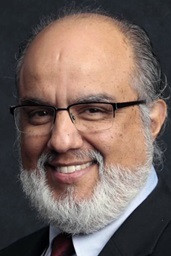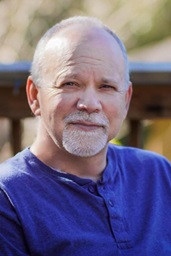Jesus summed up our job as disciples in two tasks: Love God and love neighbor.
As Christians who live out our faith in the Wesleyan tradition, we are challenged to engage in this task throughout our lives, seeking to grow a little deeper in our love for God and neighbor each day. This growth occurs as we worship, spend time in the Scriptures and prayer, fellowship with other Christians, serve our neighbors — and join in God’s redemption of this world.
Incomplete understanding
Many of our congregations have an incomplete understanding of what evangelism means in our Wesleyan tradition. Are we talking about accepting a set of prescribed beliefs? Is evangelism welcoming the stranger? Is it engaging in intentional discipleship practices? Is it reaching out and helping our neighbors? Or, is it all of the above?
Questions to consider
Here are some ways to practice sharing the story and seeking opportunities to share the Good News within the life of your congregation.
• Practice paying attention to God’s work in the world. Set aside time in your worship service, Bible study or Sunday school for people to share their God sightings. If you regularly share joys and concerns, it might be helpful to reframe that time by asking, “Where did you see God this week?” or “Where did God allow you to be in partnership in Kingdom work this week?”
• Develop the art of storytelling. Use announcements (written or spoken) to share the impact of ministry. Don’t just give the what, when and where, but tell the story of how the spent resources made a difference. Help individuals articulate personal faith journeys and invite the congregation to share their stories with one another. Pastors, have your congregations heard your faith story?
• Have the leadership teams spend time discerning God’s mission and will for your congregation. Set aside time in each committee meeting for evaluation. How are your facilities being used to share God’s love? Is your budget built to benefit church members, or are your spending resources on those outside the church? Practice Dwelling in the Word or Lectio Divina at your church council or administrative board meeting, listening for God’s leading.
During a three-day Wesleyan Leadership Conference in October, we unpacked some of our evangelism baggage and examined what evangelism should mean to us as United Methodists.
Most churches understand evangelism as sharing a set of beliefs, growing in one’s personal relationship with Jesus or loving their neighbors in tangible ways.
Rarely does the understanding encompass all three. When this disconnect occurs, we find our congregations filled with people who do not have a foundational belief structure from which to build, are stuck in a confirmation-class level of discipleship and don’t understand why they are called to love their neighbors for any other reason than “it’s what a good person should do.”
Most of us are quite proficient at compartmentalizing our lives, and our religious life is one of the compartments. We talk about God at church. We serve God at church. We might read our Bibles or pray at home, but we often do not think about living out our faith in all of the other arenas where we invest time and energy.
Church cannot be where we stop
Church is where we learn and are reminded of who we are and how we fit into God’s larger story. It’s where we practice articulating our individual faith stories and have others help us to discern our gifts and calling in God’s Kingdom. But that cannot be where we stop.
Here are a few questions to consider in evaluating your understanding and practice of evangelism.
- Is our congregation grounded in the doctrine of the church? Do we actively teach what we believe as Wesleyan Christians, or do we make assumptions that our people are already grounded in it?
- What are our current discipleship practices and processes, and do we challenge people to grow in their love of God and neighbor at all ages and stages of life?
- Does our faith inform how we engage the world beyond the walls of the church? How do we seek to partner with God in God’s Kingdom?
Our denominational mission statement is “to make disciples of Jesus Christ for the transformation of the world.” Let’s examine our evangelistic task.
We invite (Invitation) people into a lifetime of growing in love of God and neighbor (Discipleship), so that they may join in God’s world-transforming work (Mission). This cannot happen if people don’t know who they are, who God is, and how they are to live in relationship to their neighbors (and even who their neighbors are for that matter).
*Lear is the director of evangelism ministries for the United Methodist Board of Discipleship.
Like what you're reading? Support the ministry of UM News! Your support ensures the latest denominational news, dynamic stories and informative articles will continue to connect our global community. Make a tax-deductible donation at ResourceUMC.org/GiveUMCom.




